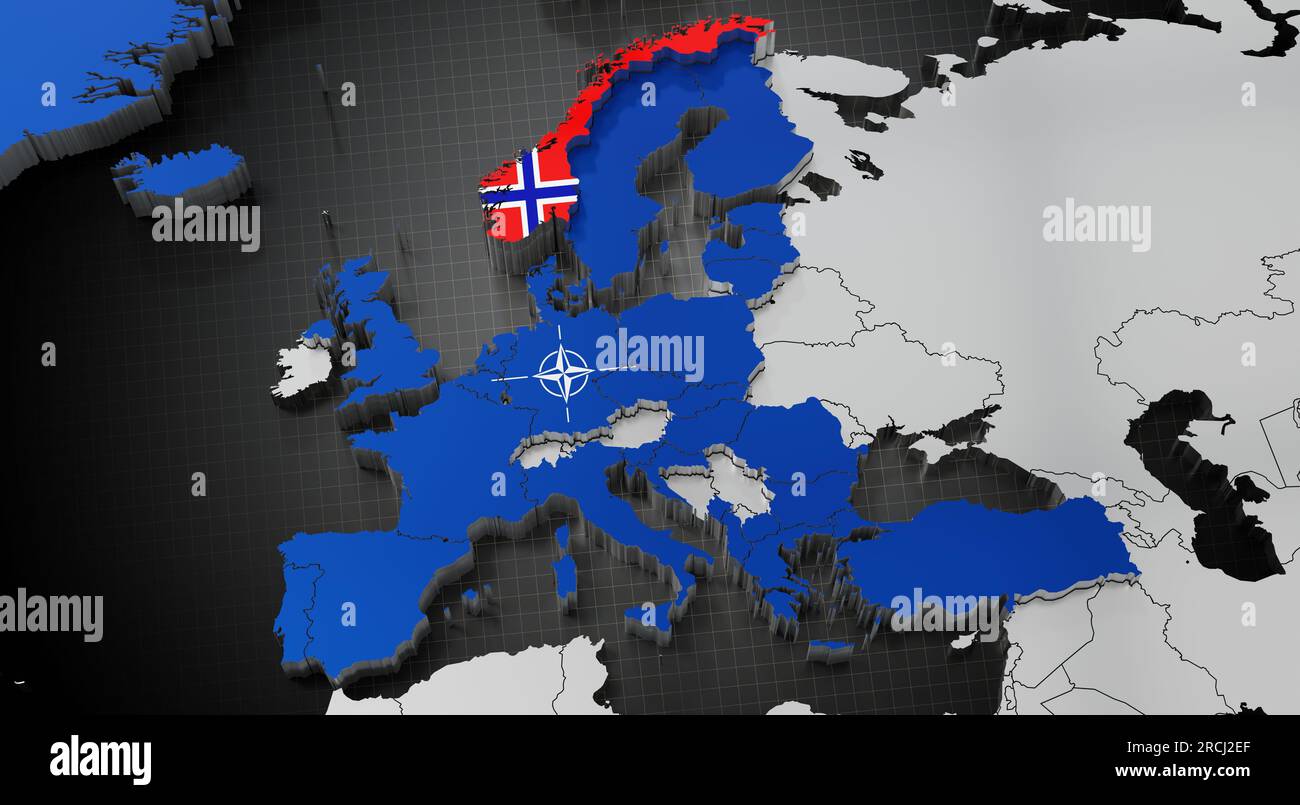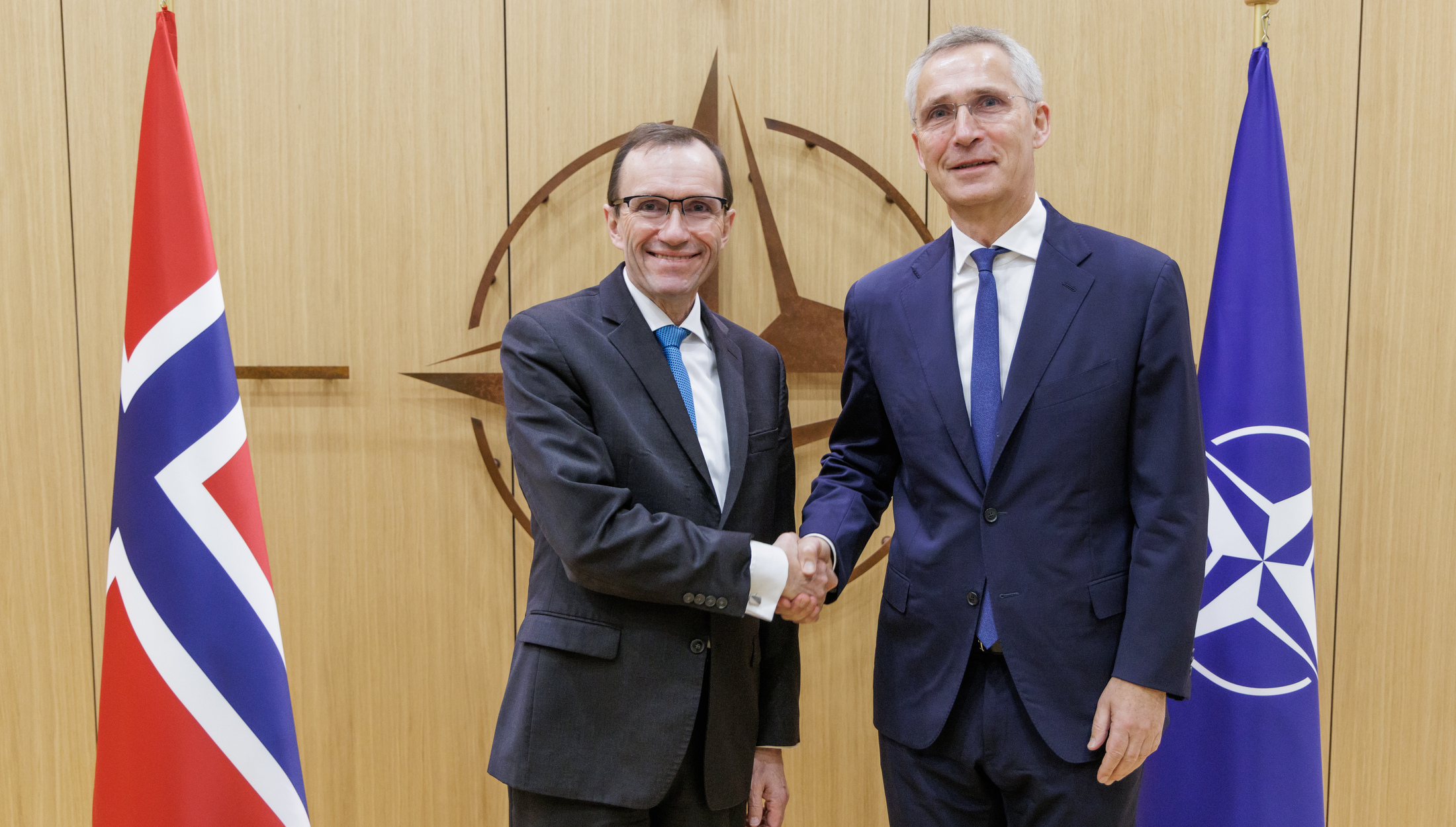Norway In NATO: A Strategic Partnership Shaping Global Security
Norway in NATO has become a cornerstone of Scandinavian and European security since the organization's establishment in 1949. As a founding member, Norway has played a significant role in shaping NATO's policies and strategies, particularly in the Arctic region and Northern Europe. This article explores the historical, political, and strategic dimensions of Norway's involvement in NATO, highlighting its contributions to global security.
NATO (North Atlantic Treaty Organization) is one of the most important alliances in the world, promoting collective defense and security among its member nations. Norway's participation in NATO reflects its commitment to protecting its sovereignty, maintaining regional stability, and contributing to international peace. This involvement is especially crucial in light of emerging security challenges in the Arctic.
As we delve into this topic, we will examine the historical background of Norway's membership, its strategic importance within NATO, and the country's contributions to various missions and operations. Additionally, we will analyze the current geopolitical context and future implications of Norway's role in NATO. By the end of this article, you will gain a comprehensive understanding of why Norway's involvement in NATO matters for global security.
- Mori Lee Wedding Dresses
- Tim Walz Family Supporting Trump
- Who Sings The Song Hey What Going On
- Who Won American Idol
- Ending Of The Sopranos Explained
Table of Contents
- The Historical Background of Norway in NATO
- Strategic Importance of Norway in NATO
- Norway's Contributions to NATO
- Norway's Role in Arctic Security
- Norway's Defense Budget and NATO Commitments
- Current Challenges Facing Norway in NATO
- The Importance of NATO Partnership for Norway
- Future Prospects of Norway in NATO
- Public Opinion on Norway's NATO Membership
- Conclusion: The Enduring Value of Norway in NATO
The Historical Background of Norway in NATO
Norway's decision to join NATO in 1949 marked a significant shift in its foreign policy. After experiencing occupation during World War II, Norway recognized the importance of collective defense and security cooperation. The country's strategic location, bordering the Soviet Union, made it a vital member of the alliance during the Cold War era.
Key Events Leading to NATO Membership
Several key events influenced Norway's decision to join NATO:
- The devastation caused by Nazi Germany's occupation during World War II.
- The growing threat of Soviet expansionism in Northern Europe.
- The need for a strong defense alliance to deter potential aggressors.
According to historical records, Norway's leadership believed that joining NATO would provide the necessary security guarantees to protect its sovereignty and territorial integrity. This decision was supported by a majority of the Norwegian population, who recognized the importance of international cooperation in maintaining peace and stability.
- Zodiac Sign June 6
- Hold On I Still Want You
- Mr Cee Cause Of Death
- Taurus And Aries In Bed
- What Happened In The Roswell Incident
Strategic Importance of Norway in NATO
Norway's strategic importance within NATO cannot be overstated. The country's location at the northern edge of Europe makes it a critical player in Arctic security and regional defense. Norway shares a border with Russia, which adds to its significance in NATO's efforts to monitor and deter potential threats in the region.
Geopolitical Significance
Norway's geopolitical position offers several advantages to NATO:
- Control of vital sea routes in the North Atlantic and Arctic Ocean.
- Access to key military installations and radar systems in Northern Norway.
- Close proximity to Russian military bases, enabling effective surveillance and intelligence gathering.
These factors make Norway an indispensable member of NATO, contributing to the alliance's overall security posture in Northern Europe.
Norway's Contributions to NATO
Norway has consistently demonstrated its commitment to NATO through various contributions, including military, financial, and diplomatic support. The country participates actively in NATO missions and operations, both within and outside Europe.
Key Contributions
Some of Norway's notable contributions to NATO include:
- Participation in NATO's Enhanced Forward Presence (EFP) in the Baltics.
- Deployment of troops to Afghanistan as part of the International Security Assistance Force (ISAF).
- Support for NATO's training missions in Iraq and other conflict zones.
According to NATO's official statistics, Norway consistently meets or exceeds its financial commitments to the alliance, contributing approximately 1.4% of its GDP to defense spending. This demonstrates Norway's dedication to upholding its responsibilities as a NATO member.
Norway's Role in Arctic Security
As one of the Arctic nations, Norway plays a pivotal role in ensuring security and stability in the region. The Arctic is becoming increasingly important due to its rich natural resources and strategic significance in global trade routes. Norway's involvement in NATO enhances its ability to address emerging security challenges in the Arctic.
Arctic Security Challenges
Some of the key security challenges facing Norway in the Arctic include:
- Increasing military activity by Russia and other Arctic nations.
- Competition for natural resources such as oil, gas, and fisheries.
- Potential conflicts over maritime boundaries and territorial claims.
To address these challenges, Norway collaborates closely with NATO partners to enhance regional security through joint exercises, intelligence sharing, and diplomatic initiatives.
Norway's Defense Budget and NATO Commitments
Norway's defense budget reflects its commitment to NATO and its role in ensuring regional security. The country has consistently increased its defense spending in recent years, aligning with NATO's target of dedicating 2% of GDP to defense by 2024.
Defense Spending Trends
Key trends in Norway's defense budget include:
- A steady increase in defense allocations since 2015.
- Investments in modernizing the Norwegian Armed Forces, including procurement of new F-35 fighter jets and submarines.
- Enhanced cooperation with NATO allies on joint military exercises and training programs.
These investments demonstrate Norway's commitment to maintaining a strong defense capability and fulfilling its obligations as a NATO member.
Current Challenges Facing Norway in NATO
Despite its strong commitment to NATO, Norway faces several challenges in its role within the alliance. These challenges include balancing national security priorities with NATO obligations, addressing emerging threats in the Arctic, and maintaining public support for NATO membership.
Addressing Emerging Threats
To address these challenges, Norway is taking several measures:
- Strengthening its military capabilities through modernization and increased defense spending.
- Enhancing cooperation with NATO allies on intelligence sharing and joint exercises.
- Promoting diplomatic solutions to regional conflicts and disputes.
These efforts aim to ensure that Norway remains a key player in NATO's efforts to maintain security and stability in Northern Europe and the Arctic.
The Importance of NATO Partnership for Norway
NATO's partnership with Norway is vital for both the country and the alliance as a whole. Norway benefits from NATO's collective defense guarantee, which enhances its security and sovereignty. In return, NATO benefits from Norway's strategic location, military capabilities, and diplomatic influence in the Arctic and Northern Europe.
Benefits of NATO Membership
Some of the key benefits of NATO membership for Norway include:
- Access to advanced military technology and intelligence sharing.
- Participation in joint military exercises and training programs.
- Opportunities for diplomatic engagement and conflict resolution.
These benefits underscore the importance of NATO's partnership with Norway in promoting regional and global security.
Future Prospects of Norway in NATO
Looking ahead, Norway's role in NATO is likely to become even more significant as the alliance faces new challenges in the Arctic and Northern Europe. The country's strategic location and military capabilities position it as a key player in addressing emerging security threats in these regions.
Anticipated Developments
Some of the anticipated developments in Norway's role in NATO include:
- Increased cooperation on Arctic security and environmental protection.
- Enhanced military exercises and joint operations with NATO allies.
- Continued modernization of the Norwegian Armed Forces to meet evolving security challenges.
These developments will ensure that Norway remains a strong and reliable partner within NATO, contributing to the alliance's overall effectiveness in maintaining global security.
Public Opinion on Norway's NATO Membership
Public opinion in Norway generally supports the country's membership in NATO, recognizing its importance in ensuring national security and regional stability. However, there are also voices advocating for alternative approaches to defense and security, particularly among certain political groups and civil society organizations.
Key Findings
Recent surveys indicate:
- Approximately 70% of Norwegians support NATO membership, citing its role in deterring potential aggressors and promoting international cooperation.
- Some critics argue that Norway should pursue a more independent foreign policy, focusing on diplomacy and conflict resolution.
- Despite these differing views, there is broad consensus on the need for strong defense capabilities and international collaboration to address security challenges.
These findings highlight the importance of maintaining public support for NATO membership while addressing concerns about its implications for Norwegian sovereignty and independence.
Conclusion: The Enduring Value of Norway in NATO
In conclusion, Norway's involvement in NATO has been instrumental in shaping global security and promoting regional stability. As a founding member, Norway has demonstrated its commitment to collective defense and international cooperation through its contributions to NATO missions, modernization of its armed forces, and leadership in Arctic security.
We encourage readers to engage with this topic by:
- Leaving comments or questions about Norway's role in NATO.
- Sharing this article with others interested in global security and international relations.
- Exploring additional resources on NATO and its member nations to deepen your understanding of this critical alliance.
Norway's partnership with NATO remains vital for addressing emerging security challenges and ensuring peace and stability in the Arctic and beyond. By continuing to support NATO's mission and objectives, Norway will play a crucial role in shaping the future of global security.
Article Recommendations
- Karate Kid Cast Now Jaden Smith
- Hocus Pocus The Rise Of The Sandersons
- Is Gladiator 2 A Sequel
- Michael Jordan Disapproves Of Larsa Pippen
- Tyla Place Of Birth



Detail Author:
- Name : Shaylee Yost
- Username : pamela.koepp
- Email : leanne.oberbrunner@yahoo.com
- Birthdate : 1975-09-01
- Address : 23781 Adelle River Suite 342 New Ruben, WY 46171
- Phone : 1-947-402-3884
- Company : Ortiz, Zemlak and Wolff
- Job : Podiatrist
- Bio : Dolorem maxime distinctio velit sit veniam et. Dolor temporibus odio id accusamus numquam. Dolor eos et ab ratione omnis. Amet dolores quod ea delectus voluptas iste et.
Socials
tiktok:
- url : https://tiktok.com/@raymundoborer
- username : raymundoborer
- bio : Sunt sint architecto reiciendis quis.
- followers : 2884
- following : 1772
instagram:
- url : https://instagram.com/raymundo_borer
- username : raymundo_borer
- bio : Iure sit sint et id at. Iusto debitis voluptas quia.
- followers : 5755
- following : 1466